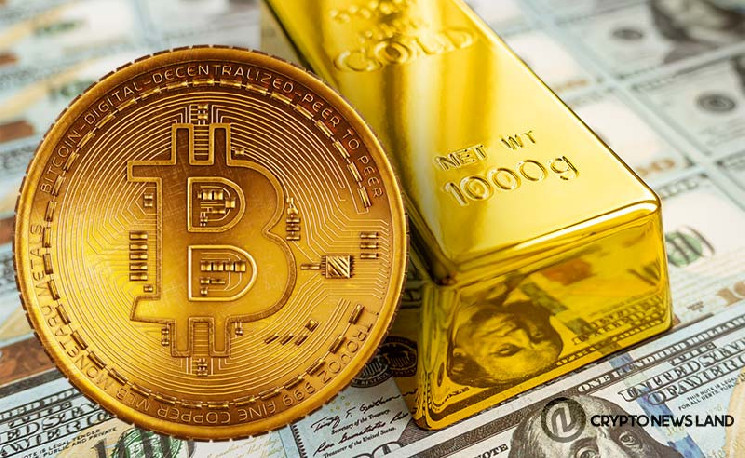NFT
- Peter Schiff has co-launched an NFT art collection using the Bitcoin blockchain.
- The NFT collection is open for bidding on June 2 and closes on June 9.
- Schiff has always been in favor of gold as a store of value and is critical of Bitcoin.
Peter Schiff has always maintained his animosity towards Bitcoin (BTC) supporters and remains one of the most outspoken critics of the top cryptocurrency to this day. However, it seems that Schiff has found a compromise and is now dipping his toes into Bitcoin – at least in the BTC blockchain.
In a recent tweet, Schiff announced his partnership with digital artist Market Price to launch his own set of Ordinals. The collection is called Golden Triumph, which confirms its undying commitment to gold as a store of value.
I am pleased to announce an art project with one of my favorite artists, Market Price. This collaboration features the original “Golden Triumph” painting, as well as a series of prints and ordinal numbers engraved on the #Bitcoin blockchain. For information visit https://t.co/lEFJmgYTCk pic.twitter.com/vyoErYv39q
— Peter Schiff (@PeterSchiff) May 26, 2023
The Ordinal collection is scheduled to go on sale on June 2, though it will be a two-part bid, according to the website. Interested bidders have until June 9 to get their hands on an Ordinal in this collection.
Like any other NFT art, each piece sold in the Golden Triumph collection contains a unique Ordinal enrolled in the Bitcoin blockchain.
For those who know little about Ordinals, these work similar to NFTs, just like those on Proof of Stake (PoS) blockchains like Ethereum and Tezos. Ordinals are a relatively new technology that has been implemented on Proof of Work (PoW) networks such as Bitcoin, Litecoin, Dogecoin, and more.
At the moment, PoS-based NFTs reign supreme in terms of market share and popularity, although Ordinals are also starting to gain traction. In fact, Ordinals were the reason the Bitcoin network reportedly charged people a lot of money just to prioritize their transactions due to problems with Bitcoin’s block size and processing time.

